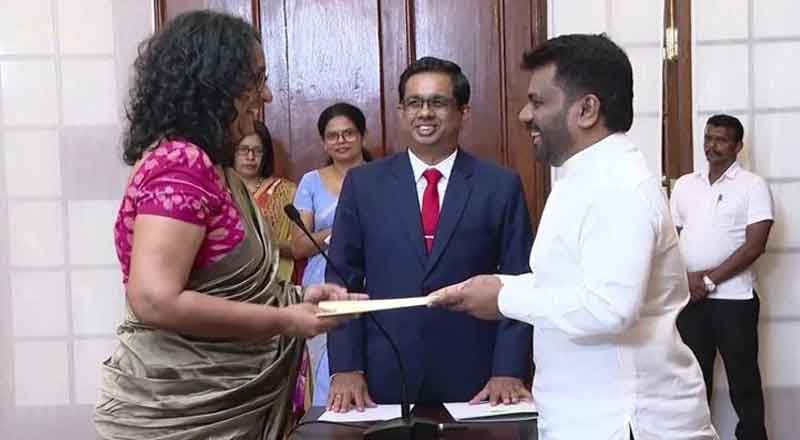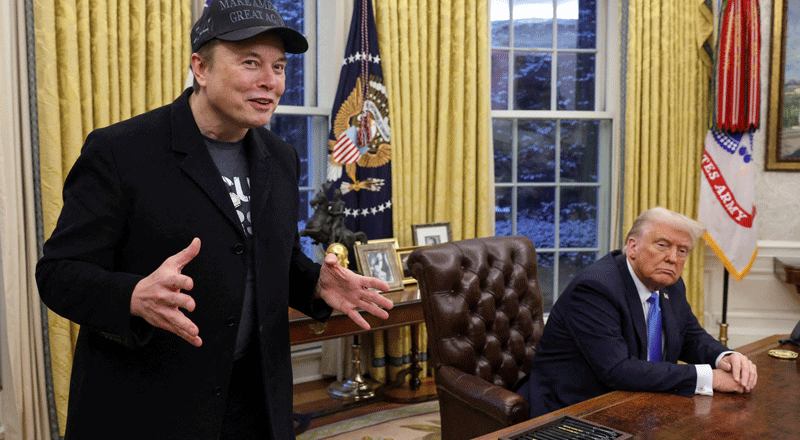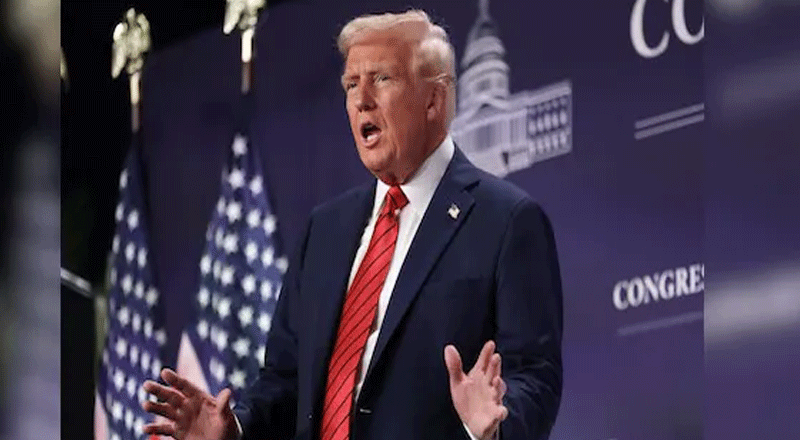A Historic Milestone for Sri Lanka
Sri Lanka recently appointed its 16th prime minister, Harini Amarasuriya, an academic-turned-politician with significant ties to India. Her appointment marks a historic milestone for the island nation, as she becomes the first woman to hold the office since 2000 and only the third in Sri Lankan history. Amarasuriya’s rise to the premiership comes at a time of unprecedented economic challenges for Sri Lanka, with her leadership expected to play a crucial role in navigating the country through these turbulent times.
Amarasuriya’s Connection to India
Harini Amarasuriya, now 54, has a deep-rooted connection to India, having spent a significant part of her academic life in the country. Between 1991 and 1994, she completed her Bachelor’s degree in Sociology at Delhi University, one of India’s most prestigious institutions. She studied at Hindu College, known for producing prominent figures in various fields, including politics, the arts, and academia. This period is believed to have been pivotal in shaping Amarasuriya’s political and academic career.
Anju Srivastava, the principal of Hindu College, expressed pride in Amarasuriya’s achievements. “It’s an honour to know that a Hinduite has become the Prime Minister of Sri Lanka,” Srivastava told PTI. “Harini was a student of Sociology from 1991 to 1994, and we are extremely proud of her accomplishments. I hope her time at Hindu played a part in shaping her path to success.”
The college’s tradition of student governance may have also influenced Amarasuriya’s future political trajectory. “Hindu College has a long tradition of student government, and we elect a prime minister and a leader of opposition every year. Harini’s appointment is another milestone in our college’s storied history,” Srivastava added.
Bollywood director Nalin Rajan Singh, a batchmate of Amarasuriya, recalled their time at Hindu College during the early 90s. “I vaguely remember her, but I know she was very involved in college festivals and debates. It was the 90s, and a lot of us … were starting to make our mark. To see her become prime minister is amazing,” Singh said, noting the excitement among Hindu College alumni and the hope that Amarasuriya might revisit the college in the future.
A Pioneering Leader in Challenging Times
Harini Amarasuriya’s appointment as Sri Lanka’s prime minister is not only historic due to her gender but also because of the critical time at which she assumes office. Sri Lankan President Anura Kumara Dissanayake, who also took on the role of finance minister, appointed Amarasuriya as part of his efforts to lead the nation out of its worst economic crisis in seven decades.
Amarasuriya’s appointment is seen by many as a strategic move that could strengthen ties between Sri Lanka and India, given her educational background and connections in Delhi. She follows in the footsteps of Sirimavo Bandaranaike, the world’s first female prime minister in 1960, and Bandaranaike’s daughter, Chandrika Kumaratunga, who served as prime minister in 1994.
Born and raised in Colombo, Amarasuriya pursued her Master’s degree in applied anthropology in Australia and later earned her PhD in social anthropology from the University of Edinburgh. Her academic background and intellectual approach set her apart from many other politicians in the region. Her leadership is expected to enhance cooperation between India and Sri Lanka, particularly in areas such as education, technology, and investment.
Challenges Ahead for Amarasuriya’s Governance
Amarasuriya takes office at a critical juncture for Sri Lanka, which is grappling with severe economic issues, including its first debt default and a punishing financial crisis. The new president, Anura Kumara Dissanayake, who won the election decisively, has taken on multiple key portfolios, including finance, economic development, and tourism.
Dissanayake’s decision to slash taxes and reconsider the terms of a $2.9 billion International Monetary Fund (IMF) bailout has raised concerns among investors. Analysts fear that delays in restructuring Sri Lanka’s $25 billion debt could exacerbate the economic situation. The timeline for the IMF’s next payout, initially expected in November, is now uncertain.
The new Sri Lankan cabinet includes individuals with varied experience, reflecting the government’s need to address the country’s multifaceted challenges. Veteran legislator Vijitha Herath, 56, was appointed to manage foreign affairs and public security, while Amarasuriya will oversee critical portfolios such as education, media, and women and children’s affairs.
Sri Lanka’s Path Forward
As Sri Lanka emerges from the shadows of last year’s economic collapse, the new leadership faces an uphill battle. The previous government, led by Gotabaya Rajapaksa, was ousted in 2022 following mass protests triggered by an economic freefall and a severe shortage of foreign exchange, leaving the country unable to pay for essential imports like fuel, medicine, and cooking gas.
The National People’s Power (NPP) coalition, led by Dissanayake and Amarasuriya, holds only three seats in the 225-member parliament, limiting their immediate ability to pass critical reforms. Analysts predict that Dissanayake may dissolve parliament and call a snap general election soon to bolster support for his government.
During his inauguration, Dissanayake promised to root out corruption and create a “cleaner” political culture. “Our politics needs to be cleaner, and the people have called for a different political culture,” he said. “I am ready to commit to that change.” However, balancing welfare promises with IMF obligations remains precarious, with both domestic and international stakeholders closely watching the government’s next steps.
As the new leadership implements an interim government, the road ahead remains fraught with challenges. Investors are wary of Dissanayake’s intentions to renegotiate IMF terms, and any delay could further destabilize Sri Lanka’s fragile recovery. The success of this administration will depend on its ability to navigate these complexities and restore stability to a nation in desperate need of it.
(With inputs from agencies)





